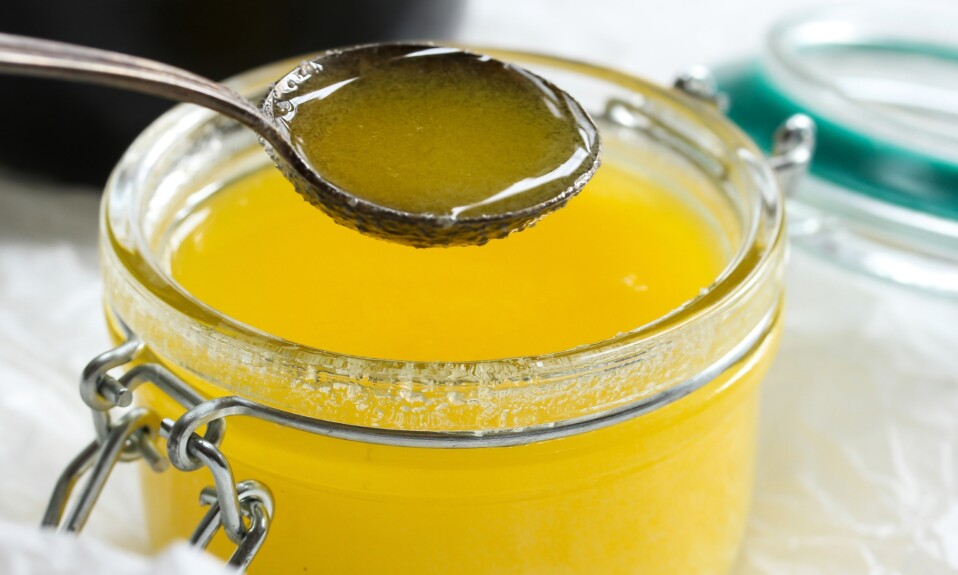Over the last few decades, the skincare industry has undergone significant changes in both aims and ingredients, driven by advancements in scientific research, consumer preferences, and a growing awareness of the importance of skincare.
In the past, skincare products primarily focused on basic cleansing and moisturizing. However, contemporary skincare aims to address specific concerns such as aging, hyperpigmentation, and environmental damage. There’s a greater emphasis on preventive care, seeking to maintain skin health and prevent issues before they arise. Ingredients in skincare have evolved with a shift towards science-backed formulations. Traditional ingredients like aloe vera and chamomile remain popular, but newer, more specialized components like hyaluronic acid, peptides, retinoids, and antioxidants have gained prominence. These ingredients aim to target specific skin issues and promote long-term skin health, which is why the cosmetics and skincare industries are keener on the formulations especially, how hyaluronic acid works for skin.
Moreover, there’s a heightened focus on sustainability, cruelty-free practices, and clean beauty. Natural and organic ingredients are increasingly sought after, reflecting a desire for products that are both effective and environmentally conscious. Technological innovations, including nanotechnology and microencapsulation, have allowed for enhanced delivery systems, ensuring ingredients penetrate the skin more effectively. The skincare industry’s evolution reflects a holistic approach, combining scientific advancements with a growing consciousness of individual well-being and environmental impact.
Commonly Used New Formulas in Today’s Skincare Products
Modern skincare products often feature advanced formulations that harness cutting-edge ingredients and technologies. Some commonly used new formulas in today’s skincare products include:
- Hyaluronic Acid (HA): Renowned for its hydrating properties, HA retains moisture in the skin, promoting plumpness and reducing the appearance of fine lines.
- Peptides: These small proteins can stimulate collagen production, aiding in firmness and elasticity, and may target specific skin concerns like wrinkles or pigmentation.
- Retinoids: A derivative of vitamin A, retinoids are known for their anti-aging effects, promoting cell turnover, reducing fine lines, and improving skin texture.
- Vitamin C (Ascorbic Acid): A powerful antioxidant, vitamin C helps brighten the complexion, even out skin tone, and protect against environmental damage.
- Niacinamide (Vitamin B3): This versatile ingredient addresses various skin concerns, including reducing inflammation, minimizing pores, and improving uneven skin tone.
- Ceramides: Essential lipids that support the skin barrier, ceramides help retain moisture and strengthen the skin’s protective function.
- Alpha Hydroxy Acids (AHAs) and Beta Hydroxy Acids (BHAs): Chemical exfoliants like glycolic acid (AHA) and salicylic acid (BHA) help remove dead skin cells, unclog pores, and improve skin texture.
- Antioxidants: Ingredients like green tea extract, resveratrol, or Coenzyme Q10 help neutralize free radicals, protecting the skin from oxidative stress.
- Probiotics: Beneficial bacteria promote a healthy skin microbiome, potentially calming inflammation and supporting skin barrier function.
- Adaptogens: Botanical extracts like ashwagandha or ginseng aim to help the skin adapt to stress, potentially reducing signs of fatigue or irritation.
What is Hyaluronic Acid?
Hyaluronic acid (HA) is a naturally occurring substance found in the human body, particularly in the skin, connective tissues, and eyes. It belongs to the class of glycosaminoglycans, which are compounds that play a crucial role in maintaining the structure and hydration of tissues.
In skincare, hyaluronic acid is widely used for its exceptional ability to retain water. It has the capacity to hold up to 1000 times its weight in water, making it a powerful hydrating agent. As we age, the natural production of hyaluronic acid in the skin decreases, contributing to the development of fine lines and wrinkles. Therefore, incorporating hyaluronic acid into skincare products is common to address moisture retention and promote a plump, hydrated complexion.
When applied topically, hyaluronic acid helps to hydrate the skin, reduce the appearance of fine lines and wrinkles, and improve overall skin texture which is what we know the basics of how hyaluronic acid works for skin. However, the benefits are much more. It is often featured in moisturizers, serums, and other skincare formulations, contributing to its popularity in the beauty and skincare industry.
Common Skincare Products That Use Hyaluronic Acid
Hyaluronic acid (HA) is a widely used ingredient in skincare products and cosmetics due to its exceptional hydrating properties and its ability to address various skin concerns. Here’s how hyaluronic acid is commonly used in these products:
- Moisturizers: HA is a key component in moisturizers as it attracts and retains moisture, helping to keep the skin hydrated and plump. It’s suitable for all skin types, including dry and sensitive skin.
- Serums: Hyaluronic acid serums are concentrated formulations that deliver a potent dose of hydration. They are often used to target specific concerns such as fine lines, wrinkles, and dehydration.
- Anti-Aging Products: Many anti-aging formulations, including creams and treatments, incorporate hyaluronic acid to help reduce the appearance of fine lines and wrinkles by promoting skin hydration.
- Eye Creams: Given its ability to retain water, hyaluronic acid is commonly found in eye creams, addressing concerns like puffiness, dark circles, and crow’s feet by providing intense hydration to the delicate eye area.
- Sheet Masks: Hyaluronic acid-infused sheet masks provide a quick and intensive boost of hydration. The mask helps the skin absorb the HA, leaving it revitalized and moisturized.
- Makeup Products: Some foundations, primers, and even setting sprays include hyaluronic acid to enhance skin hydration and create a smoother, more radiant complexion.
- Lip Care Products: Lip balms and treatments often contain hyaluronic acid to hydrate and plump the lips, providing a smoother and more supple appearance.
- Sunscreen: Certain sunscreens incorporate hyaluronic acid to offer not only sun protection but also hydration, promoting healthier skin.
Hyaluronic acid’s versatile and hydrating properties make it a popular and effective ingredient in various skincare and cosmetic formulations, contributing to the overall health and appearance of the skin.
How Hyaluronic Acid Works on Skin?
Hyaluronic acid (HA) works on the skin by attracting and retaining moisture, contributing to hydration, plumpness, and overall skin health. Here’s how hyaluronic acid works for skin:
- Hydration: One of the key characteristics of hyaluronic acid is its exceptional ability to hold water. It acts as a humectant, attracting moisture from the environment and deeper layers of the skin, helping to keep the skin hydrated.
- Water Retention: HA can hold up to 1000 times its weight in water. When applied topically, it forms a hydrating barrier on the skin’s surface, preventing water loss and maintaining optimal hydration levels.
- Plumping Effect: By attracting and retaining water, hyaluronic acid promotes a plumping effect on the skin. This can help reduce the appearance of fine lines and wrinkles, giving the skin a smoother and more youthful appearance.
- Improved Elasticity: Hydrated skin is more supple and elastic. HA contributes to the skin’s natural elasticity, promoting a firm and toned complexion.
- Supports Collagen Production: Hyaluronic acid interacts with collagen, a structural protein in the skin. This interaction helps support collagen synthesis, contributing to the skin’s strength and resilience.
- Smooth Texture: HA helps improve the overall texture of the skin by providing a surge of moisture. This can result in softer, smoother skin with a more even tone.
- Enhanced Penetration of Other Ingredients: When included in skincare formulations, hyaluronic acid can enhance the penetration of other active ingredients, promoting their effectiveness.
It’s important to know that the natural production of hyaluronic acid decreases with age. Incorporating HA into skincare routines, through serums, creams, or other products, helps replenish and maintain optimal hydration levels for healthier, more youthful-looking skin, which is precisely how hyaluronic acid works for skin.
Associated Risks of Hyaluronic Acid
While hyaluronic acid (HA) is generally considered safe for topical use and is widely used in skincare and cosmetic products, there are some associated risks, particularly when it comes to certain cosmetic procedures or injectable treatments. Here are potential risks:
- Allergic Reactions: In rare cases, individuals may be allergic to hyaluronic acid. Allergic reactions can lead to redness, swelling, itching, or rash. It’s crucial to perform a patch test before using new skincare products containing HA.
- Injection Risks: When used for cosmetic procedures like dermal fillers, there is a risk of injection-related issues. These may include bruising, swelling, pain, or infection at the injection site. It’s important to seek these treatments from qualified and experienced practitioners.
- Granulomas: In some cases, the body may react to hyaluronic acid injections by forming small lumps or nodules known as granulomas. This can affect the appearance and texture of the skin.
- Migration and Displacement: There’s a potential risk of the hyaluronic acid filler migrating from the injection site or becoming displaced, leading to asymmetry or undesirable results.
- Overfilling or Underfilling: Improper application of hyaluronic acid fillers can result in overfilling or underfilling, impacting the aesthetic outcome and potentially requiring correction.
- Bruising and Swelling: Temporary bruising and swelling are common side effects, especially when using injectable hyaluronic acid which is also a risk factor, associated with how hyaluronic acid works for skin. These effects typically subside within a few days.
It’s essential to consult with a qualified healthcare professional before undergoing any cosmetic procedure involving hyaluronic acid. Additionally, individuals with known allergies or sensitivities should carefully review product ingredients before using skincare products containing hyaluronic acid. Always follow proper application instructions and seek medical advice if any adverse reactions occur. These fresh new formulations cater to various skin concerns and are often combined for synergistic effects in modern skincare products. It’s essential to consider individual skin types and concerns when incorporating these ingredients into a skincare routine. Consulting with a dermatologist or skincare professional can provide personalized recommendations.












